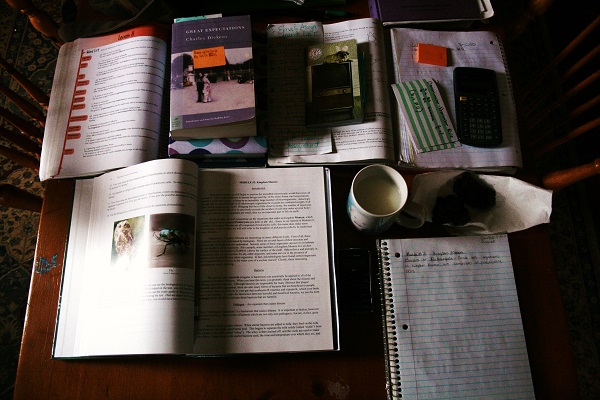Learning More Than One Language at Once? Here are Some Tips to Help
A common theme that seems to come up amongst most language learners is whether or not it’s actually possible to learn and maintain more than one language at the same time. If you identify as an overachiever who has to do everything at 100% (or more), then you’ve probably played with the idea of tackling multiple languages at once. It is actually possible to learn more than one language at the same time, but be warned that it will require a fair amount of organization and discipline on your part. Double the languages = double the trouble! So read on for some great tips to help you if you’re attempting to learn and maintain more than one foreign tongue.
Photo via Flickr
Create your personas
Not getting your languages mixed up is probably one of the trickiest parts of learning multiple languages. I grew up speaking English and Spanish, but still accidentally throw in French words when I’m chatting with my Spanish-speaking friends! Your brain tends to spaz out when you least expect it, and the result could be a mumbo-jumbo of languages mixed together, which is not good. To help keep the languages separate in your brain, invent a different persona for each language. Try to think and act differently depending on what language you’re speaking. If you’re a completely different person when you speak Japanese as opposed to when you speak Russian, you’re much less likely to get them mixed up!
Don’t start from scratch
If you begin learning both languages from scratch, you’ll be learning the basics of each language at the same time, which means you’re more likely to get confused or to mix up words and phrases. For better results, only start studying another language once you feel you have a reasonable grasp on the basics of your first. By studying them at different levels of proficiency, you’ll avoid overlap and will have an easier time progressing. When is a good time to introduce another language? Once you can hold a steady conversation in your first and don’t have to think about the basics.

Photo via Flickr
Be flexible
There will be days in your language learning where you’re feeling more in touch with one language than another, or you find yourself gravitating towards one but struggling to devote time to the other. Instead of beating yourself up and feeling guilty, just go with the flow! As long as you’re doing something in each language every day, you’re moving towards your goals. If there’s a day where you want to focus on French for 2 hours, but only manage to do 15 minutes of Mandarin flashcards, that’s perfectly okay. Next week you may be putting more effort into Mandarin and a little less into French, who knows? Be flexible with your approach and happy with what you’re accomplishing.
Remember your motivation
If learning a language starts to become more like a job rather than an enjoyable pastime, it may be time to consider giving it up. No one likes to be a quitter, but it’s widely known that if you’re not invested in the language you’re learning, the chances of you achieving the fluency you want are low. Passion and enjoyment actually play a huge part in learning a foreign tongue, and it’s important that you sit down and go over your motivations for learning those multiple languages. Do you actually need to learn two or more languages at once? Or are you simply doing it so you can brag about being a polyglot? If bragging rights are your only motivation, you will definitely struggle. But if you’re someone who loves languages and has specific motivations behind why you’ve chosen to learn Irish, Hungarian, or Portuguese, then these will keep you going even when the going gets tough!

Photo via Flickr
Look at the big picture
Before you decide to tackle more than one language simultaneously, take a moment to picture yourself 6 months down the road. Then a year. Then 5 years. Do you still see yourself speaking those languages? Here’s the thing: even after you achieve an advanced level of fluency, languages still require a lot of upkeep. The language learning journey never ends and this is something you’ll have to be willing to work on for the foreseeable future. Things are always exciting in the beginning stages because everything is new and different, but can you stick with it once the honeymoon has ended? If you can’t, then perhaps you should reconsider investing your time in learning multiple languages at the same time.
Want to see how your language learning is going? Take a free placement test to see how your level measures up!
Are you learning multiple languages at the same time? What are some of your tips and tricks for managing them? Share your experience with us in the comments section below!



